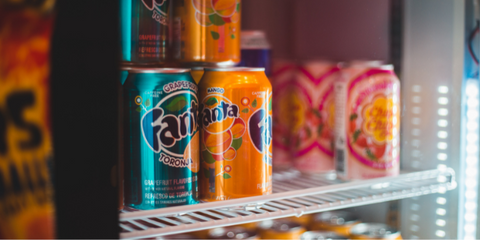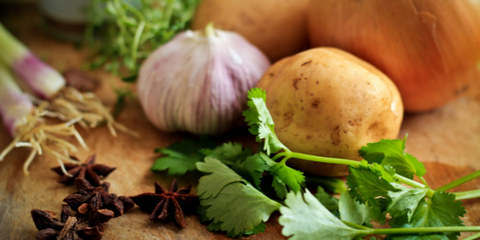Studies have given insight into just how influential the gut microbiome is when it comes to the health of both the mother and foetus during pregnancy.
You’ve probably heard time and time again of the importance of gut health – and in this case, it’s worth the hype. That’s why it’s not surprising to find the research backs the powerful role that the gut microbiome plays for those who are pregnant – and their babies too.
A healthy gut flora is responsible for the following:
- Foetal development.
- A safe pregnancy.
- A healthy microbiome for the baby once born.
What is a healthy gut microbiome?
The gut microbiome is made up of trillions of bacteria that have taken up residency in your body. To get these organisms to work to your benefit, you need a variety of good gut flora. Thus helps to protect the stomach lining, strengthen immunity and prevent autoimmune conditions like Crohn’s disease.
As such, a diverse microbiome during pregnancy is beneficial for the mother and child alike. For one, researchers have established a connection between the way we eat and how often we pick up infections, and it all has to do with the microbiome. One study shows the role it has in regulating the immune response to pathogens.
It’s worth noting that babies only start developing their unique microbiome after their birth – many having their first colonisation of gut flora during breastfeeding. The probiotics and prebiotics in the breast milk play an essential role here, with each mother having a different variety of bacteria that influences the child’s own gut microbial development.

In fact, one such bacterium known as Bifidobacterium longum infantis,helps protect newborns from bad bacteria and strengthen their gut lining. A combination of diet, exercise and additional probiotic consumption can help to up your store of this powerhouse probiotic strain.
How food affects your gut microbiome.
The foods you put on your plate are integral in shaping the flora living in your gut. But it’s not just about what you eat, it’s also about what you don’t eat. Diets high in trans fats and alcohol can lead to a disruption of this system. One of the biggest offenders is sugar – here’s why:
Diets high in sugar, specifically fructose, can lead to changes to the gut bacteria, with research finding it lowered microbial diversity, and less diversity means less protection. Here’s where it gets worse – researchers noticed a high-sugar diet led to higher levels of Proteobacteria. Greater prevalence of this bacteria is usually an indicator of an unbalanced microbiome, known as dysbiosis. As a result, people are at higher risk for metabolic disfunction, which can lead to type 2 diabetes, heart disease and stroke.
On average Aussies consume around 15 teaspoons of added sugar per day, which is more than double the 6-teaspoon recommendation from the World Health Organisation. It’s not as hard as you’d think to get there – with sugar lining the supermarket shelves in innocent-looking packages, it can sneak its way into our pantries without us realising.

With around 9 teaspoons of sugar in a can of coke, we can see how just one drink can have us soaring past the daily limit and this is why it’s so easy to tip our gut flora into disarray.
Though it’s normal for disruption and change to take hold of the microbiome during pregnancy, a healthy diet, including consumption of probiotics, contributes to reducing the risks, for both the mother and foetus. Some of the health conditions associated with dysregulated gut flora include:
- Gestational diabetes.
- Autoimmune diseases.
- Obesity.
- Acid reflux and other digestive disorders.
What you can do.

Maintaining a healthy diet is one of the first steps to developing – and keeping – a diverse, healthy array of good gut bacteria.
- Probiotics: Foods packed with probiotics, like kefir, yoghurt, kimchi and Sauer kraut provide the body with beneficial bacteria, and play an important role in building up a healthy gut. These also play a role reduce blood pressure and help to prevent pre-eclampsia; a pregnancy complication associated with hypertension.
- Prebiotics: Food like oats, artichoke and garlic come under this category, and their function is to stimulate the development of good bacteria and create a more hospitable environment for the probiotics to do their job.
- Fatty acids: These are important for the absorption of vitamins A, C and D – which are all needed to maintain gut health. Opt for unsaturated fatty acids – meaning skip out on the fried foods and commercial baked goods.
- Antioxidants:The polyphenols in antioxidants help to promote the growth of healthy bacteria in your gut.
Eating a mix of these foods – along with reducing sugar intake – are all contributors to a strong and healthy gut microbiome. If you need a little help quitting your sugar habit, join us for our 8-Week Program. We’ll be cutting out sugar with extensive meal plans, shopping lists and tasty recipes, plus there will be a team of experts guiding you through the whole process.
Sound good? Sign up HERE.






Leave a comment (all fields required)